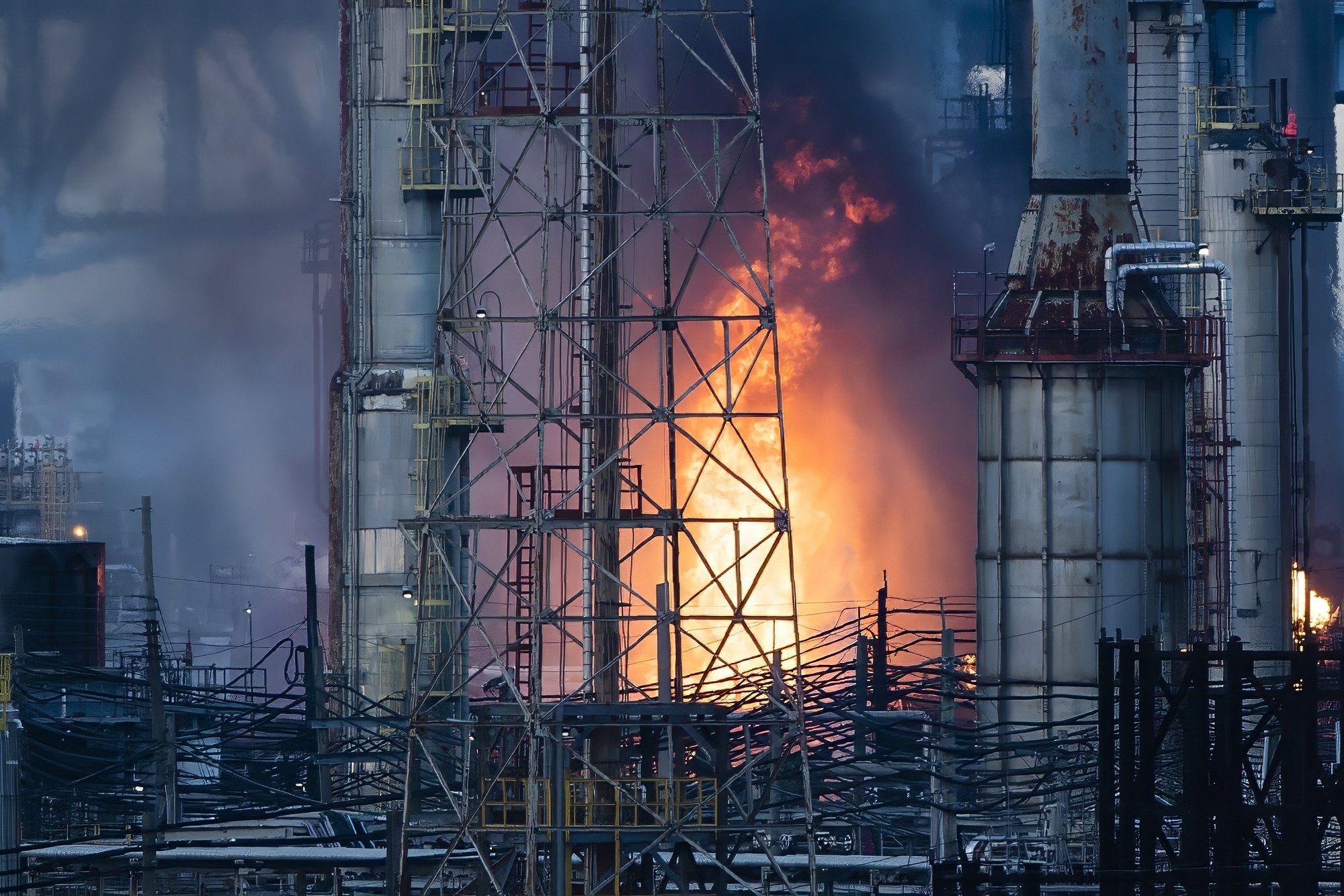Monitoring for a Safer, Greener Future
The Problem : Obsolete Monitoring at Scale
Technologies have grown to a mega scale, transforming industries across the globe. However, monitoring systems haven't kept pace. They're outdated, reactive, and inefficient, leaving companies vulnerable to devastating consequences.
Basic Monitoring
Current systems rely on manual checks and limited sensors, providing a fragmented view of operations.
Massive Shutdown Costs
Unplanned shutdowns can cost millions of dollars per day, with ripple effects across supply chains. $1.5 trillion in operational costs (Fortune 500 Companies Globally).
Loss of Life
Safety incidents, caused by undetected faults, can lead to injury or death.
Irreversible Environmental Damage
Undetected leaks and emissions contribute to climate change, harming ecosystems and communities.
Difficulty is that the sources of data in most sites are collected passively and hence come with informational blindspots. Data collected with that can precisely pinpointing problems (often obtained by high-precision robots) miss the big picture needed to focus their observations in a timely manner (shown in top-left picture). In contrast, high-coverage images, obtained from high-flying UAV or satellite images, tend to lack detail and are blind to minute yet critical details. In fact, for a given cost, all existing solutions trade off these extremes and the nature of their blindspots in a zero-sum fashion creating inevitable blind-spots.
This means that, perhaps more critically, training machine learning models with these unavoidable blindspots replicates the blindspots (possibly in an upredectable,
The Solution: KavOS
Our Active Physical Intelligence platform, KavOS, eliminates blind spots and adapts in real-time. Unlike competitors (and passive generative AI models) KavOS simultaneously ensures precision (focus on critical areas) and proactiveness (real-time response).
Two Components:
Active Data and Inference
Uses AI-enabled robots, sensors, and cameras to seek and collect multi-modal physical data (already deployed).
Active Foundation Model
Adaptive foundation model training and fine-tuning for precise prediction and proactive intelligence.
Active Physical Intelligence “bends” the precision vs speed trade-off curve for a given fixed cost.
Market Size: Exponential Possibility
The industrial monitoring market is projected to grow exponentially in the coming years, driven by the urgent need for efficiency, sustainability, and safety improvements.
Global Market Value
The industrial monitoring and automation market was valued at approximately $50 billion in 2023, with an expected CAGR of 7.5% annually, reaching $80 billion by 2030.
Oil & Gas Sector
One of the largest segments of this market, the oil and gas industry, accounts for $10 billion in monitoring solutions and continues to grow due to regulatory demands and environmental concerns.
Environmental Monitoring
With increasing environmental regulations worldwide, the demand for advanced leak detection and emissions monitoring systems is expected to reach $15 billion by 2028.
Safety Systems
Safety monitoring systems are a critical component, expected to grow from $8 billion to $12 billion within the next five years.
The growing emphasis on sustainability, along with stricter regulations and the high cost of unplanned shutdowns, is driving companies to seek more advanced solutions. Kav AI is well-positioned to capture a significant share of this expanding market by providing smarter, more cost-effective monitoring solutions.
Traction: Oil & Gas
Initial focus
The energy sector (oil, gas, petrochemicals), addressing unplanned accidents and incidents.
Future opportunities
Maritime, mining, and other industrial sectors.







